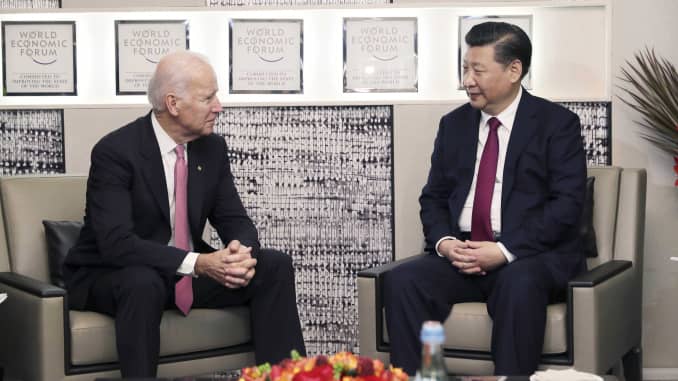
United States’ Strategy Is Changing: The Tsai Government Must Wake Up
The mainstream U.S. strategy after World War II has been one that stresses U.S. hegemony and its role as world police. On the other hand, moderates who advocate restraint promote a strict definition of core U.S. interests: to reduce overseas troop presence, to renegotiate or terminate overseas security commitments, to avoid the use of force and to increase cooperation with other powers to resolve disputes by peaceful means. These moderates have long been suppressed by the strategic mainstream, which sees them as weak, isolationist and detrimental to the expansion of U.S. hegemony.
After Joe Biden took office, even the Rand Corp., which has always had significant influence on U.S. defense and diplomatic warfare, changed its previous mainstream position and released its latest report, "Implementing Restraint: Changes in U.S. Regional Security Policies To Operationalize a Realist Grand Strategy of Restraint," at the end of January, hoping to draw greater attention to the issue and stimulate thought from all fields of study in the United States. This act makes it clear that U.S. strategy is changing.
In this report, the section on China policy is of most relevance to us. It is evident that the moderates do not view a U.S.-China conflict as inevitable. They argue that the risk of conflict and war with China will be reduced if the U.S. takes the initiative to move to a more conciliatory policy, reduces its military presence in East Asia, establishes a mechanism of mutual trust with China and recognizes and confronts the influence of China's rise on East Asian countries.
They have even proposed that the U.S. should intervene by force in the Asia-Pacific region only in the face of Japan's subjugation by China. There are even different views on whether the U.S.-Japan security treaty should be upheld in the case of a dispute between China and Japan over the Tiaoyutai Islands.* They advocate reducing the United States’ commitment to Taiwan; that even if China invaded Taiwan, it would not result in Chinese hegemony in the region, and therefore the U.S. should not intervene militarily. The moderates advocate restarting mutually beneficial trade and investment with China, expanding cooperation with China on climate change, anti-terrorism, nuclear nonproliferation and issues regarding the Korean Peninsula.
The U.S. is afflicted by serious domestic problems, and internal affairs should take precedence. It takes a single falling leaf to herald the coming of autumn — starting with the report published by the Rand Corp., an organization that traditionally backed the mainstream strategy, the United States’ global and China strategies are changing. The Biden administration, with its new officials in office, sees the China issue as the first issue that they must address with allied nations. Although the newly in power administration is still promoting a harsh stance toward China, it is only doing so to put up a necessary front before policy adjustments. The Democratic Progressive Party administration** must wake up! Even the U.S. is following its self-interest toward a peaceful relationship with China. The two sides of the Taiwan Strait share a language, a race and the same ancestors, not to mention a huge number of common interests in economy and trade — does the Tsai government really want to keep on saying "Wuhan coronavirus" and charging down its anti-China path?
*Translator’s note: These are referred to as the Senkaku Islands by Japan.
**Editor’s note: The Democratic Progressive Party controls the presidency and the unicameral legislature of Taiwan.

